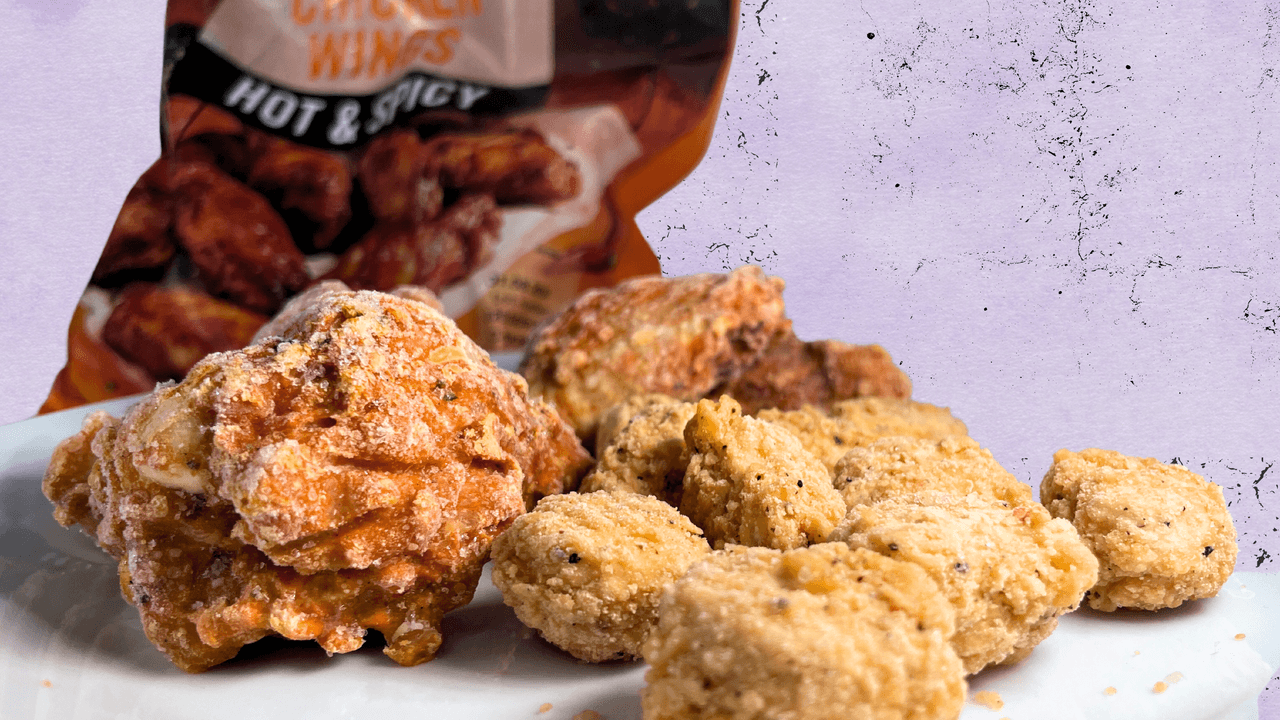
Polish meat giant supplied superbug-infected chicken to UK shelves
A major meat supplier to UK supermarkets is sourcing chickens dosed with antibiotics linked to the spread of deadly superbugs, raising the risk of future outbreaks of life-threatening disease, the Bureau of Investigative Journalism can reveal.
The Polish meat giant SuperDrob is sourcing chicken from factory farms that use medicines classified as “critically important” to human health, despite the grave risk this poses to consumers. SuperDrob sells frozen poultry products to Lidl, Asda and Iceland.
The company was linked to a fatal salmonella outbreak in 2020 – which TBIJ, the Guardian and ITV can now reveal involved bacteria resistant to multiple drugs – and there were at least 15 salmonella contaminations linked to SuperDrob poultry in the 18 months that followed.
Bacteria such as salmonella can easily spread on poultry farms, particularly where there are unhygienic or overcrowded conditions. The use of antibiotics on farms can enable potentially lethal bacteria to develop resistance, meaning the drugs will no longer work to treat infections. Antibiotic-resistant bacteria – known as “superbugs” – are a growing threat to human health, leading to an estimated 1.2 million deaths globally in 2019.
To reduce the risk of superbug outbreaks, EU legislation tightened up the use of antibiotics on farms as of last year. Yet the use of drugs critical for human health on farms in Poland, Europe’s biggest producer of poultry meat, has soared in recent years.
The country has accounted for more than half of serious salmonella contaminations involving meat originating in the EU since 2020. SuperDrob is one of Poland’s leading poultry producers and more than 50% of its revenue is from exports.
In recent years, sales of a class of antibiotics known as fluoroquinolones, which are often used to treat serious salmonella infections, have increased by more than 70% in the country. Data shows even larger increases in the sales of colistin, a last-resort drug used to treat serious infections that have not responded to other medicines. Both are classified by the World Health Organization as critically important for human health.
Poland’s chief veterinary inspectorate told TBIJ that the prophylactic (or preventative) use of antimicrobials was not common practice on Polish poultry farms and that antibiotics are only administered by a vet on prescription once they have examined an animal. It added that “the health and commercial quality of Polish food is maintained at a high level”.
SuperDrob said the drugs were in use but denied any overuse of antibiotics and said that such behaviour is also prohibited for its suppliers. It said that none of its facilities are unhygienic or in substandard condition, adding that all of its policies adhere to EU and Polish legal requirements and many are even stricter than current requirements.
One farmer who supplies the company told TBIJ that critically important antibiotics are used on their farm. Another source working for SuperDrob who wished to remain anonymous said similar practices were in use elsewhere.
A vet who serves multiple poultry farms, including some that sell chicken to SuperDrob, told TBIJ that fluoroquinolones are used on farms at various points in the rearing process.

SuperDrob said the drugs are only used in its farms or those of its suppliers when recommended by a veterinarian and justified by the presence of a disease and where administration of antibiotics would achieve therapeutic success. It said it is reducing its use of fluoroquinolones and colistin in order to phase them out by 2025.
Asda said all its imported frozen poultry products go through rigorous safety and quality checks. Iceland Foods said it prohibits its suppliers from prophylactically using antibiotics that are critical for treating diseases in humans. Lidl also said its suppliers are prohibited from using antibiotics as a preventative measure.
TBIJ tested samples of waste collected from a number of Polish poultry farms that have supplied SuperDrob, and discovered bacteria – including E.coli, a major source of food poisoning in humans – resistant to fluoroquinolones.
The testing was overseen by Tim Walsh, professor of medical microbiology at Oxford University. He described the findings as “seriously worrying” – and said UK supermarkets “have a duty of care” to consumers when it comes to their sourcing.
Walsh said there had been a failure at an EU level to monitor antibiotic use in Poland, and that the country’s soaring sales of high-priority antibiotics should have raised alarm bells: “Someone should have stepped in.”
The EU Commission said that measures taken in Poland since the outbreak, including improved biosecurity on farms and better hygiene in meat plants, had resulted in a reduction of salmonella contaminations.
Superbug outbreak
SuperDrob meat plants and farms were identified by EU and UK authorities as the main source of a UK salmonella outbreak in 2020 that infected more than 400 people – an incident that TBIJ has found was far more dangerous than previously thought.
TBIJ screening of genetic sequences from bacteria responsible for the outbreak found that most were resistant to fluoroquinolones. In some instances, samples were also found to be resistant to multiple drugs, making infections even more difficult to treat as the bacteria respond to fewer antibiotics.
In December 2020 Christine Middlemiss, the UK’s chief veterinary officer, wrote to her Polish counterpart calling for action. The letter, seen by TBIJ, disclosed that cases matching the salmonella strain responsible for food poisoning had been recorded in the UK as far back as 2012 and amounted to almost 1,300 cases.
UK supermarkets recalled certain SuperDrob products on detecting the bacteria but because the company supplies frozen products, infected meat may have been kept in consumers’ freezers for a long time after.
SuperDrob said that at the time of the outbreak there was no need for individual infection control due to low infection rates, but that it introduced its own system for the control of salmonella which was developed by poultry disease and quality department specialists. It said that it also varied the contracts with its breeders to ensure that these systems were in place at their facilities. It said that no similar instances have been detected in its products since March 2021.
Kath Dalmeny, chief executive of food campaign group Sustain, likened the practices uncovered on farms supplying SuperDrob to “feeding antibiotics to a whole classroom of children just in case one of them has an infection, creating a breeding ground for antimicrobial resistance”.
Asda said customers should always thoroughly cook frozen chicken products to reduce the risk of getting ill.
This story was updated on June 30 to include comment from Poland's chief veterinary inspectorate.
Header image: Oliver Kemp for TBIJ
Reporters: Misbah Khan and Andrew Wasley
Impact Producer: Grace Murray
Environment Editor: Rob Soutar
Editor: Meirion Jones
Production Editor: Alex Hess
Fact checker: Alice Milliken
Our reporting on antimicrobial resistance is part of our Environment project, which has several funders. None of our funders have any influence over our editorial decisions or output
-
Area:
-
Subject:




